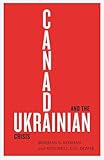Canada and the Ukrainian crisis /Bohdan S. Kordan and Mitchell C.G. Dowie.
Material type: TextPublication details: Montreal ; Kingston ; London ; Chicago : McGill-Queen's University Press, (c)2020.Description: 1 online resource (xiv, 142 pages)Content type:
TextPublication details: Montreal ; Kingston ; London ; Chicago : McGill-Queen's University Press, (c)2020.Description: 1 online resource (xiv, 142 pages)Content type: - text
- computer
- online resource
- 9780228002734
- 9780228002741
- F1029 .C363 2020
- COPYRIGHT NOT covered - Click this link to request copyright permission: https://lib.ciu.edu/copyright-request-form
| Item type | Current library | Collection | Call number | URL | Status | Date due | Barcode | |
|---|---|---|---|---|---|---|---|---|
 Online Book (LOGIN USING YOUR MY CIU LOGIN AND PASSWORD)
Online Book (LOGIN USING YOUR MY CIU LOGIN AND PASSWORD)
|
G. Allen Fleece Library ONLINE | Non-fiction | F1029.5.38 (Browse shelf(Opens below)) | Link to resource | Available | on1176568950 |
Includes bibliographies and index.
"Since 1991, Canada has provided Ukraine with ongoing political and economic assistance. Never was this policy pursued with more urgency than in 2014, when Russian aggression prompted the Canadian government to elevate its support for Ukraine to a foreign policy priority. Although the move is often described as a radical departure, Bohdan Kordan and Mitchell Dowie contend that it was consistent with Canada's security interests and political and historical identity. In this calculation the worldview of Prime Minister Stephen Harper also figured prominently. Canada and the Ukrainian Crisis offers a timely explanation of the dynamic interaction between key factors - at the international, national, and individual levels - that shaped the Canadian government's response and imbued it with an unusual degree of urgency. Explaining the nature of the crisis and why it elicited such a forceful reaction from the Harper government, Kordan and Dowie assert that Canada's decision to side openly with Ukraine is best understood as a course correction, rather than a completely new foreign policy direction. They argue that this action reaffirmed Canada's historical commitment to a liberal rules-based order that has been an emblem of its foreign policy since the Second World War, treating the Ukrainian crisis as part of a wider struggle to defend liberal principles and values. Resolving lingering questions about the most serious geopolitical event since the end of the Cold War, Canada and the Ukrainian Crisis demonstrates that the policy changes triggered by the crisis represent a return to deep-rooted concerns about international order."--
Cover -- Copyright -- Contents -- Preface -- Acknowledgments -- Introduction -- 1 International Order and Canadian Aspirations: An Appreciation -- 2 The Ukrainian Crisis, Canada, and World Order: Systemic Imperatives and the Canadian Response -- 3 The Crisis and Canadian Interests: Canada's Support for Ukraine -- 4 The Leadership of Stephen Harper: Agency, Worldview, and the Ukrainian Crisis -- 5 Stephen Harper's Ukraine Policy: Toward an Understanding -- The Harper Government's Response to the Ukrainian Crisis: A Chronology -- Notes -- Index
COPYRIGHT NOT covered - Click this link to request copyright permission:
There are no comments on this title.
